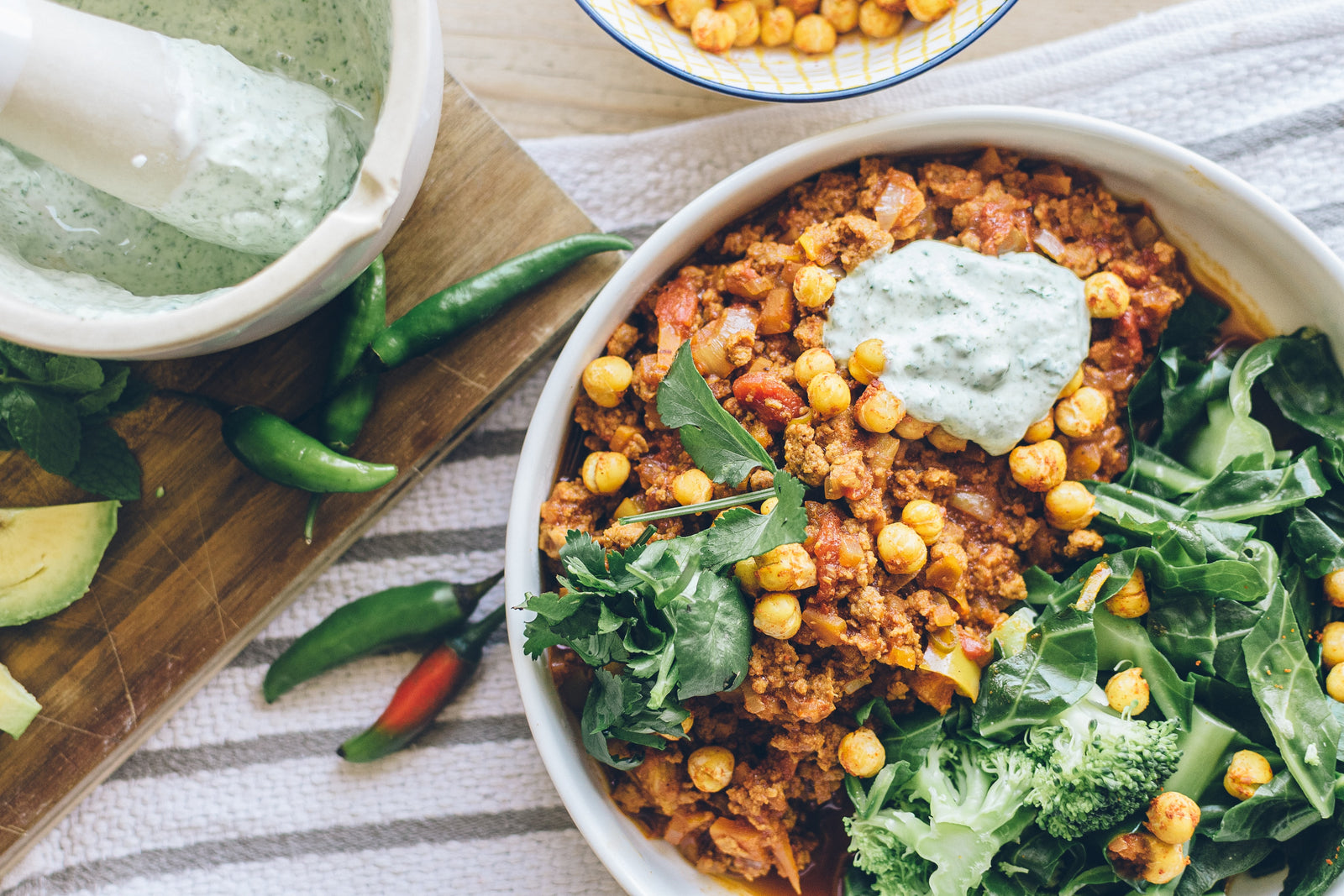★ 100,000 HAPPY CUSTOMERS | ⛟ FREE shipping on orders over $75.
★ 100,000 HAPPY CUSTOMERS | ⛟ FREE shipping on orders over $75.
A column with no settings can be used as a spacer
Link to your collections, sales and even external links
Add up to five columns
A column with no settings can be used as a spacer
Link to your collections, sales and even external links
Add up to five columns

7 Best Gluten-Free Plant-Based Protein Alternatives
March 07, 2022 4 min read
March 7 is National Plant Power Day. We would like to celebrate this together by raising awareness of the importance of including more plant-based proteins into your diet!
Why Choose Plant Protein?

You know that you need protein for a healthy diet, but do you know where to find it? Many people think they need to consume large amounts of meat to get their daily dose of protein. This is not the case! There are plenty of plant-based proteins available to provide you with all the nutrients you need.
Some of the benefits of consuming plant-based proteins include helping with achieving your weight goals, reducing your risk of chronic diseases, improving your gut health and more. Plant-based proteins are also an excellent alternative for those looking to reduce their meat intake for environmental or ethical reasons.
In this blog post, we will discuss the benefits of lentils, chickpeas, quinoa, potatoes, and vegetables as plant-based protein sources. We'll also explore why these ingredients are beneficial for your everyday diet. So read on to learn more about these amazing and yummy vegetables!
Lentils
Lentils are a great source of protein and fibre, folate, and minerals such as iron and potassium. They are also low in fat and calories, making them a healthier option for people who looking to achieve their weight goals. The rich nutrients in lentils also helps with promoting healthier digestive function and gut health. Additionally, lentils are a good source of antioxidants, anti-inflammatory, antibacterial, and anti-viral effect, which can help protect the body against chronic disease like diabetes, cancer, and heart disease.
Chickpeas
Chickpeas are another amazing plant-based protein option. This legume is high in fibre, potassium, magnesium, vitamin A, and vitamin C. Chickpeas are also a good source of antioxidants, which can help protect the body against disease. Additionally, they have a low glycemic index, making them a healthy choice for anyone struggling with diabetes. Chickpeas are a versatile ingredient and can be used in many different dishes.
Quinoa
Quinoa is another high-protein plant food that the community is raving about. It is a complete protein, meaning that it contains all the essential amino acids needed for human health. Quinoa is also high in fibre, magnesium, and phosphorus. This grain is also low in fat and calories, and can be beneficial for anyone looking for a gluten-free, low fat and low calories option. It also has a low glycemic index, which makes it ideal for most diets, especially for those who are looking to avoid and manage their blood sugar level spikes. Quinoa is a versatile ingredient and can be used in many different dishes, and cooked like rice or added to soups and salads for extra protein. You can read more about the full benefits of quinoa and Instant Quinoa here!
Potatoes
Potatoes are not just for dinner anymore! Potatoes are also a good source of protein, as well as fibre, potassium, niacin, magnesium, phosphorus, and vitamins C and B-complex. Potatoes are also a good source of antioxidants, which can help protect the body against disease. The starchy tuber is also low in calories and cholesterol-free, making them a healthier choice for a plant-based protein source.
Potatoes can be eaten boiled, baked, mashed, or in salads. Potatoes are a versatile food that can be enjoyed by people of all ages. Try incorporating potatoes into your next meal for a nutrient-rich plant-based protein source.
Broccoli, Spinach, and Kale
Finally, we will discuss protein-rich vegetables. Vegetables such as broccoli, spinach, and kale are excellent protein sources. They are also high in fibre, vitamins, and minerals, which makes them a nutritional powerhouse. Eating protein-rich vegetables. Protein is essential for building and repairing muscles, tissues and organs. It’s also necessary for making enzymes and hormones. Getting enough protein can help prevent or treat conditions like anemia, osteoporosis and obesity.
🥦 Broccoli: This cruciferous vegetable is a good source of fibre, vitamins C and K, folate and minerals like potassium and magnesium. One cup of cooked broccoli contains about four grams of protein.
🥬 Spinach: This leafy green vegetable is packed with nutrients like vitamin Eating protein-rich vegetables can help you maintain a healthy weight, boost your energy levels and reduce your risk of disease. One cup of cooked spinach contains about five grams of protein.
🥬 Kale: This nutrient-rich vegetable is a good source of fibre, vitamins A, C and K, calcium and iron. One cup of cooked kale contains about four grams of protein.
Eating protein-rich vegetables are a great way to increase your intake of this important nutrient and has many benefits that goes a long way.
So there you have it! Six amazing plant-based proteins that are perfect for your everyday diet. At Nomad Nutrition, we understand and value the importance of having a balanced diet and optimizing the meals to fuel your adventures, which is why each of our meals are packed with protein and taste just like a freshly cooked meal after rehydration.
You can check out our full range of meals here!
Try incorporating some lentils, chickpeas, quinoa, potatoes, and vegetables into your next meal and see how amazing you feel! Don't forget to add them to your next meal, we promise you won't regret it!
Leave a comment
Comments will be approved before showing up.